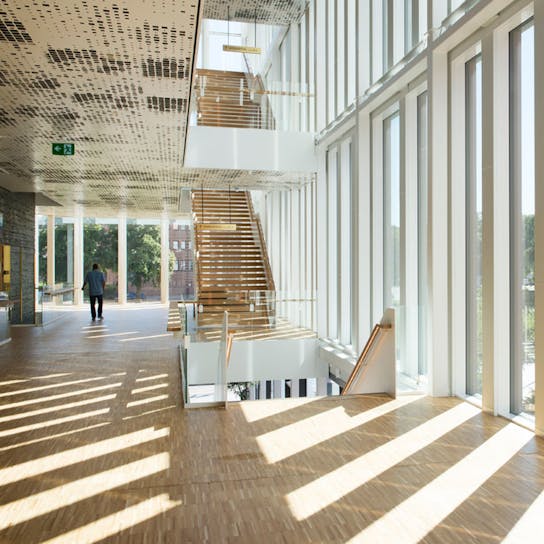The positive impact of insulation
However, the benefits of energy renovation extend far beyond reaching climate goals. A 2017 study4 shows that better health resulting from a good indoor environment could help to significantly finance energy renovation programmes by reducing healthcare costs, especially in the worst-performing buildings or where energy poverty is a real issue.
Insulation has other positive impacts on quality of life. New research5 suggests that sleep deprivation is associated with shorter lifespans, cancer, Alzheimer’s, heart disease and mental health problems. Yet in Europe, around 30 percent of people6 have their sleep disturbed by noise. This issue disproportionately affects people in energy poverty, who are more likely to be disturbed by noise from neighbours. Because it also reduces noise levels, better thermal insulation can therefore have a wider positive impact on people’s wellbeing.
And when buildings are renovated, they typically look better. More pleasant neighbourhoods create a “virtuous circle” where people are inspired to care for their local environment and one another, transforming an area into a better place to live.
With the ability to improve health and wellbeing as well as help limit climate change, insulation can contribute to a better quality of life for people everywhere in the world.
1 "Energy efficiency potential in buildings", OECD/IEA, 2016
2 "Constructing the future: creating a Paris Agreement-proof building sector", Climate Action Tracker Partners, 2016
3 Heating and cooling info graphic
4 "Adapting an English methodology to assess health cost benefits of upgrading energy inefficient French dwellings", ec eee, 2017
5 "Sleep should be prescribed': what those late nights out could be costing you", The Guardian, 2017
6 Berglund B, Lindvall T, Schwela HD, editors. Guidelines for community noise. Geneva: World Health Organization












